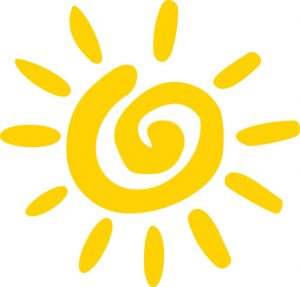(Also, take a look at my page ‘Music and thoughts on healing‘)
Music, English words and audio © Alexander Massey, 12 May 2013
 BUY the sheet music (lead sheet) – $3.95
BUY the sheet music (lead sheet) – $3.95
BUY the sheet music (SATB) – $9 (4 copies @ $2.25)
BUY the sheet music (SSAA) – $9 (4 copies @ $2.25)
BUY the sheet music (TTBarB) – $9 (4 copies @ $2.25)
Moses prays the words Eil, na r’fa na lah – ‘God, please heal her now’ – as a petition for healing his sister Miriam (Num 12:13). The extra word ana (‘I beseech’) at the start, is found in the 16th century devotional poem Yedid Nefesh (which focuses on bringing the yearning heart closer to God, and inviting God closer to his people and creation). The English words I have created refer to the Mi sheberach prayer, a blessing for the wellbeing of a community. It can be used within the context of illness, tragedy, loss and challenge, but is also now familiar in the Torah service, where those coming up to read are given an individual blessing with the prayer. The earliest known written example of a Mi sheberach prayer is in a 13th century prayerbook, the Machzor Vitri. Invoking the ancestors, and the goodness God has bestowed in the past, is a way to focus on the positive. The Mi sheberach prayer asks for r’fuah sh’leimah – complete healing. Sh’leimah and shalom (peace) share the same word root, meaning wholeness.
A prayer such as this can raise interesting questions. What is petitionary prayer? Does God answer it, and what is meant by God answering prayer? What kind of healing are we asking for or expecting? The Mi sheberach prayer asks for both bodily and spiritual healing. Within the Jewish mystical tradition of Kabbalah there is the principle of theurgy. This concerns our role in tikkun olam, the repairing of the world. Early kabbalists believed that pure intention (kavannah), words, music, prayer and action in the physical world could affect the spiritual realms; in turn, this could draw down the healing power of Shekhinah (the indwelling Presence) into the physical world. We are partners in Creation, in maintaining and restoring health and order in the world. We cannot know what impact our thoughts, words or deeds may have on God, but we know that they affect us and those around us. At the very least, a healing prayer helps us maintain our own awareness of the need and hope for healing, and helps us stay alert for opportunities to contribute to that process. Some prefer not to make petitionary prayers on Shabbat, in order that God is not asked to ‘work’ on Shabbat. On the other hand, if God stopped His creative input for even a split second, everything would cease to exist! Moreover, there is the principle of pikuach nefesh ‘saving a life’ that overrides even Shabbat laws (Talmud, Yoma 84b). Health and life are so important, perhaps we can feel encouraged to offer a healing prayer even on Shabbat.
How gentle and beautiful. Thank you Alexander.
Thank you! x